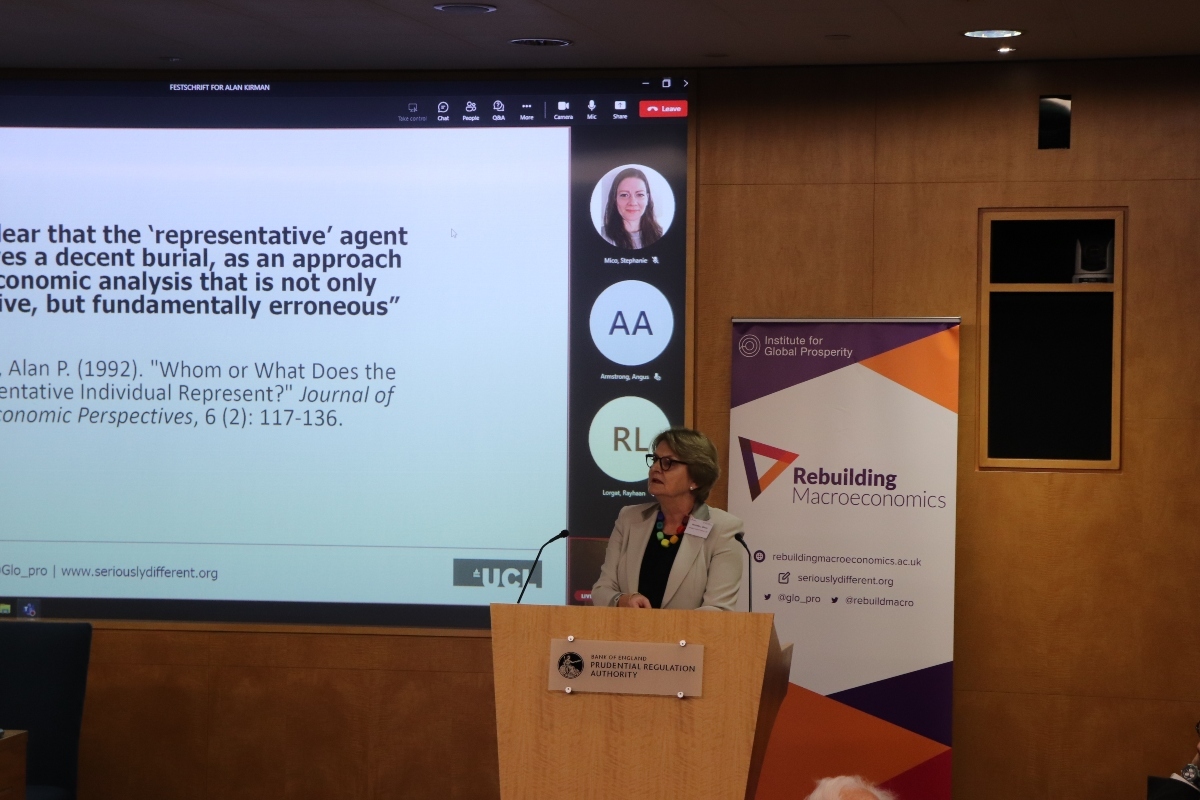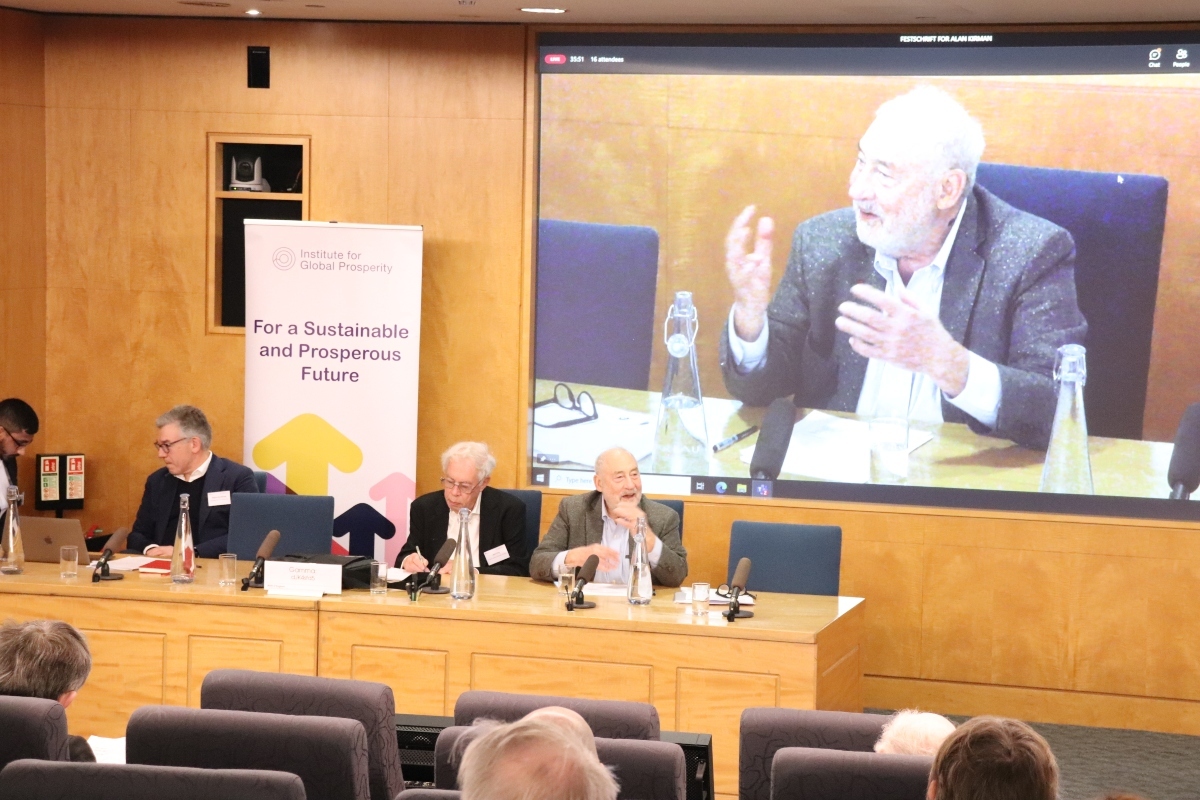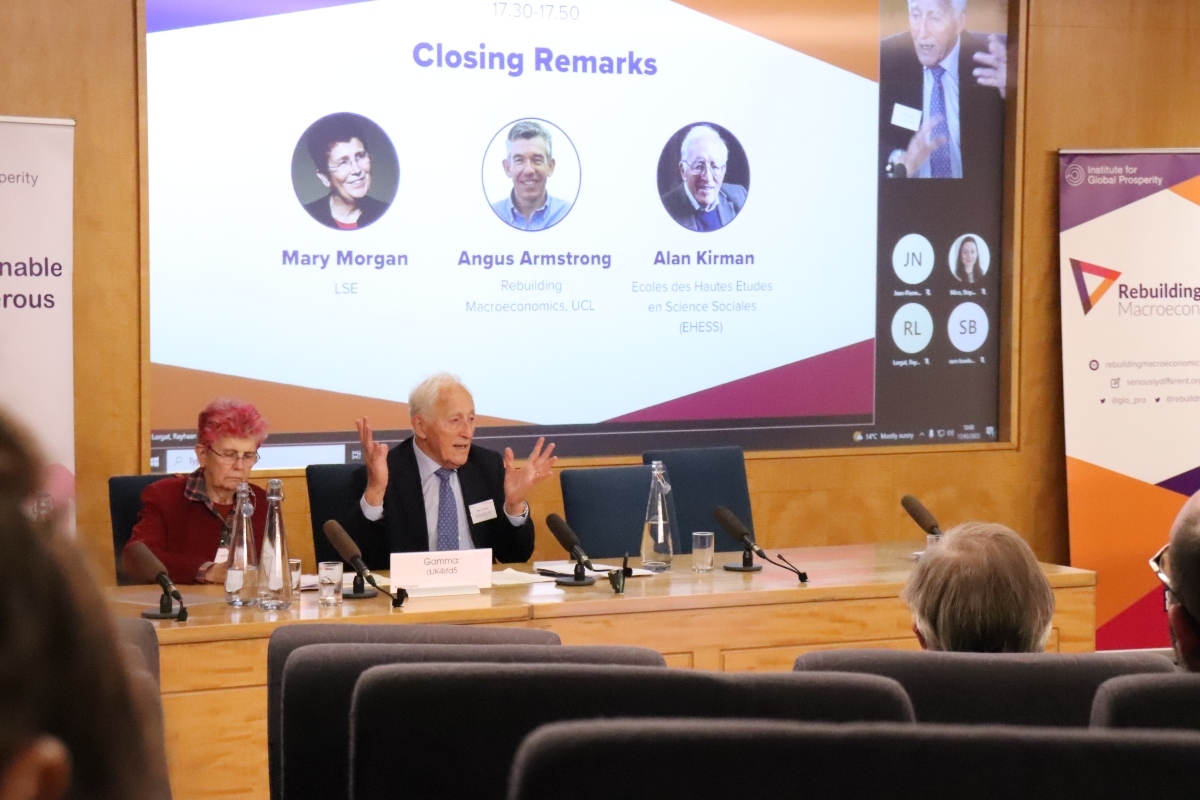William Hynes, Angus Armstrong and Rayhaan Lorgat
The Festschrift for Alan Kirman was held at the Bank of England on 16-17 March 2023. The discussions highlighted the important contributions which Alan has made to economics and policy in the company of some of the world’s leading and emerging economists and scientists.
The discussion comprehensively challenged the foundations of modern economic analysis - general equilibrium theory, rationality, representative agents, market efficiency and aggregation – more is not the same. Many of those present had experience of working on micro foundations based on rational expectations. Stiglitz and Grossman highlighted in 1980 that if the Efficient Markets Hypothesis was true then there is no incentive to gather the information that makes it work.

Giovanni Dosi suggested that demand and supply curves populate economic analysis with double axiomatic notions of equilibria, both “in the head” of individual agents, and in environments in which they operate. Ed Hopkins considered the equilibrium point as one never reached. Mauro Gallegati said that mainstream economists have ended up being more concerned with the characteristics of the states of an economy instead of how those states are achieved.
Progress in macroeconomics has involved hanging ideas on the old framework and by modifying the approaches e.g., multiple equilibria, heterogeneous agent models, and integrating behavioural economics. As John Kay concluded, the history of economics is probably the only example in the history of science where a reductio ad absurdum argument is made and the absurdity is adopted as true.
We discussed empirical evidence as to how the economy in general and some markets in particular function. Rama Cont and other speakers noted that markets, whether for finance or fish, and economies tend to operate in far from equilibrium conditions, and that different agents should be individually modelled as autonomous, active, and interactive entities, capable of making decisions. Strategic behaviour among heterogeneous interacting agents with incomplete information generates a network.
In finance, information moves prices through the interaction of market participants. Information and interaction are two sides of the same coin. Market efficiency provides a convenient shortcut that made it possible to build the edifice of mathematical finance without taking interaction into account. Pia Andres applied these ideas to the green transition and found that export complexity and diversity play a key role in determining transition risk. Path-breaking diversification strategies are needed to prevent nations from becoming stranded.
From this, emerging as an alternative approach is to treat the economy as a complex adaptive system in which aggregate behaviour emerges from the interaction between rather simple economic agents. Agent-based modelling and complexity ideas are useful to economics by addressing: agent heterogeneity, bounded rationality, social networks, and out of equilibrium dynamics. Bob Axtell noted that such an approach had displaced mathematical equations in analysing traffic, epidemiology and armed conflict and there were several calls to build on complexity economics as an alternative to mainstream equilibrium economics.
Two issues strike us as important in following up on this discussion. The first from Joe Stiglitz was why have ideas and concepts such as equilibrium remained central to economic theory even though they are obviously wrong? And second a question from our host at the Bank of England, what does this discussion mean for policymakers?

Rebuilding Macroeconomics will certainly be promoting this agenda and the search for answers. We hope to bring this work to the attention of a broad community in policy, academia, the private sector and civil society and ensure that Alan’s work finds its proper influential place in economics.

Watch recordings of the Thursday and Friday sessions below.
Thursday 16th March - https://youtu.be/4w7z3PZYHzw
Friday 17th March - https://youtu.be/k83ovF4xpIw
Fatemeh Sadeghi
30 May 2024 Feminists in the Global South have stepped out of the conventional territories of ‘women’s matters’ into more fund...